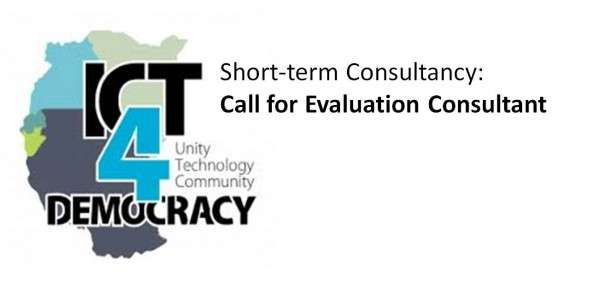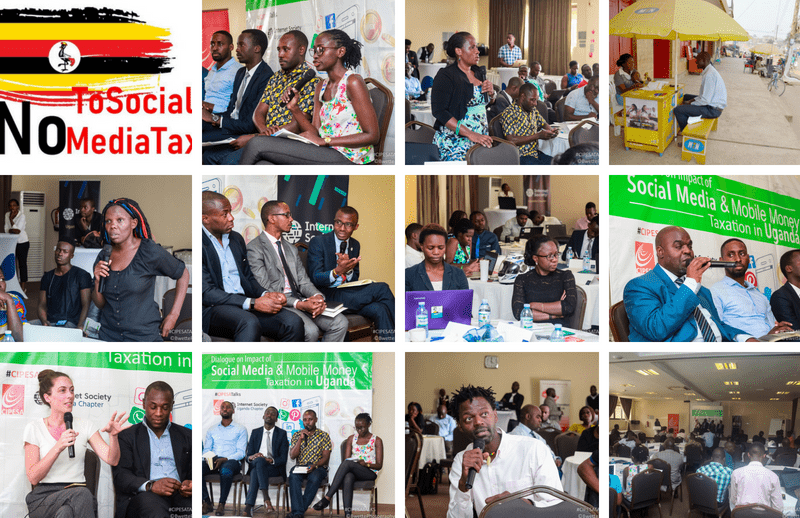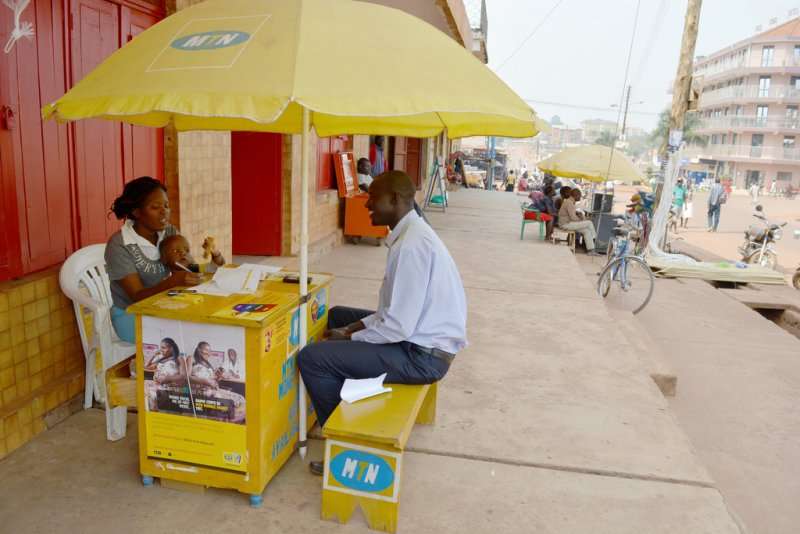By Tomiwa Ilori |
Transparency and accountability in governance are key tenets of participatory democracy. To this end, Sweden was the first country in the world to introduce a right to information (RTI) law back in 1766. Finland followed in 1919, and to-date, over 100 countries across the world have enacted laws that give citizens the right to access information in the hands of government.
In Africa, 21 countries have passed Freedom of Information (FOI) laws, while 16 have proposed laws. Most countries have constitutional provisions for the right to information, pursuant to obligations under various international and regional instruments. These include the Universal Declaration of Human Rights, the International Covenant on Civil and Political Rights (ICCPR), the African Charter on Human and Peoples’ Rights and the Declaration of Principles on Freedom of Expression. A model law on access to information for Africa was prepared by the African Commission to serve as a template and encourage more countries to adopt legislation embodying international, regional, and sub-regional standards.
Meanwhile, there have been regional efforts to ensure citizens’ realisation of the right of access to information. Civil society organisations together with the African Union and African Commission on Human and Peoples’ Rights adopted the African Platform on Access to Information Declaration in 2011. There was also the Midrand Declaration on Press Freedom in Africa in 2013 which recommended that African countries take up open governance culture through access to information laws. However, the reality for most countries is that information requests are routinely refused or ignored, with citizens sometimes turning to the courts in order to access information in the hands of government.
Nigeria passed its freedom of information law in 2011. Under the Act, public institutions and “private companies utilising public funds, providing public services or performing public functions” are mandated to make public records and information freely available, guarantee citizens’ right to be duly informed of facts relevant to them and maintain records of all activities, operations and businesses. Without specifying whether its calendar or working days, the law provides for a response time to information requests of seven days. This may be extended if the request involves a large number of records or consultations have to be made. Proactive disclosure is also provided for under the law. Information exempt from disclosure includes that related to international relations, defence, law enforcement and investigations. Wrongful denial of information is an offence under the Act, punishable with a fine of Nigerian Naira 500, 000 (US$1,400).
The Attorney General of Nigeria is mandated to collate information on implementation of the Act based on information from the various government entities. According to statistics from the official FOI website, the number of requests made by citizens is on the decline. In 2013, 1,183 requests were recorded, of which 48 were denied. The following year, requests dropped by three quarters to 314, 35 of which were denied. Requests further dropped in 2015 to 217, of which 36 were unsuccessful. Figures for subsequent years are unavailable but denial of access to information remains prevalent.
In a May 2018 case, a human rights lawyer was denied information on fuel imports by the Nigerian National Petroleum Corporation (NNPC). The corporation argued that it was established “by law to manage the commercial interests of Nigeria in the oil and gas sector of the economy and conduct trade therein”, and was therefore not a public institution within the meaning of the Freedom of Information Act.
The following month, a Nigerian court denied an access to information request for details of the President Muhammadu Buhari’s medical bills. The request was filed to the Central Bank of Nigeria by the Advocacy for Societal Rights Advancement and Development Initiative (ASRADI).
Some cases of denial have compelled requesters to seek orders for disclosure. For example, the Nigerian Contract Monitoring Coalition initiated a court case and succeeded in compelling the Power Holding Company of Nigeria, the Electricity Distribution Company Plc and the Nigerian National Petroleum Corporation to release information, which had initially been denied.
Courts have also set precedent in proactive disclosure by public institutions. In February 2014, a Federal High Court ordered the National Assembly to make its financial records accessible to members of the public through the provisions of the Freedom of Information Act of 2011. This galvanised the #OpenNASS advocacy campaign. More recently, the Court of Appeal in the Akure Division, Ondo State, ruled that the Act is applicable across federal states. This has put to rest the debate as to whether States in Nigeria need to comply with the provisions of the Act.
The situation in Nigeria mirrors that in Uganda whose access of information law was passed in 2005 but challenges still persist. The law has remained largely unimplemented because many public institutions have a culture of secrecy –they rarely release information pro-actively and routinely ignore citizens’ requests for information. Where government information or data is available, it is often not in reusable formats. Likewise, most citizens are not empowered to make information requests due to ignorance of the law, thus undermining participation in civic engagements and governance processes.
Furthermore, implementation of the access to information law in Uganda is hindered by limitations to the bodies or organs to which information requests can be made – the law excludes private entities and civil society. Like Nigeria, information exempt from access in Uganda includes that related to privacy of an individual, defense, security, international affairs, legal proceedings and law enforcement. The response time for a request is within 21 days of receipt. Wrongful denial of requests is punishable under the Act with a fine of Uganda Shillings 4,800,000 (US$1,300) or imprisonment for three years or both.
User statistics from Uganda’s Ask Your Government portal show that since its launch in June 2014 to-date, 2,647 requests have been made to 106 agencies. Out of these, 231 are indicated as successful and 40 unsuccessful. With over 2,300 requests awaiting responses beyond the 21 days limit, the majority can be regarded as refusals pursuant to section 18 of the Access to Information Act (ATIA), 2005. The section states: “where an information officer fails to give the decision on a request for access to the person concerned within the period contemplated under section 16, the information officer is, for the purposes of this Act, regarded as having refused the request”.
Some Ugandan citizens have also opted to seek redress from the courts for denied requests. In 2009, two Ugandan journalists sued the government over failure by the Solicitor General to grant access to information regarding oil production, prospecting and exploitation agreements. The case was dismissed on the basis that a clause in those agreements provided for confidentiality.
In a landmark case, on February 2015, a Chief Magistrate’s Court in Kampala ruled that the reasons for which information is requested or the belief about how it will be used “are irrelevant considerations” in determining government’s approval or denial of a request. The ruling came after the Hub for Investigative Media was denied access to information related to activities of the National Forestry Authority funded by the World Bank between 2009 and 2011.
Implementation of access to information laws in Nigeria and Uganda shows that there is a lot to be done with respect to giving life to the existing legislation. Some of the ways through which the policy and practice gaps can be overcome is through records digitisation in all public institutions. This will not only help to save time in operations, it will also help with efficient record-keeping, search, retrieval and disclosure. Equally, translating freedom of information laws into local languages will help raise awareness on the rights of citizens and the obligations of duty bearers which will go a long way in realising the objectives of the FOI laws. Implementation of the laws can also be fast-tracked through compliance reporting to parliament by state institutions.
Ultimately, the experiences of Nigeria and Uganda show that courts are proving to be a means of recourse, and if effectively utilised, have the potential to set national and even regional precedent to make it easier for citizens to exercise the right to information.
Call for Evaluation Consultant: ICT4Democracy in East Africa Network
The Collaboration on International ICT Policy in East and Southern Africa (CIPESA) is seeking an evaluation consultant to establish the achievements, outcome and challenges registered by the ICT4Democracy in East Africa Network during the period June 2016 to December 2018. The evaluation will assess the appropriateness, effectiveness and outcomes of the network in relation to the program objectives
Closing date for applications: 17:00 hours East African Time (EAT) on Friday December 7, 2018
Further details on the scope, eligibility and how to apply are available here.
Why Uganda’s Government Should Take a Different Path to Social Media and Mobile Money Taxation
Statement |
There has been widespread concern over newly introduced levies on social media access and mobile money transactions in Uganda, which are widely considered a threat to internet access and affordability, as well as to freedom of expression and access to information. The effects of the taxes that took effect on July 1, 2018, were the focus of discussions at a recent stakeholder dialogue organised by the Collaboration on International ICT Policy for East and Southern Africa (CIPESA) and the Internet Society Uganda Chapter.
At the dialogue, entrepreneurs, journalists, lawyers, activists, technologists, and academics shared their perspectives and experiences, resulting in a set of recommendations to the government on alternatives to the current modes of taxation.
The government says the taxes are needed so as to expand the country’s tax base. In the 2018/2019 national budget speech, the finance ministry estimates that up to UGX 486 billion (USD 131 million) could be collected annually by 2022 from taxes on social media Over-The-Top (OTT) services.
However, presenting early results on an ongoing study on the impact of the taxes, Dr. Christopher Stork of Research ICT Solutions stated that the country’s rural-based users of social media and mobile money will be hardest hit by the taxes, increasing the percentage of the unconnected and resulting in decreased revenue for telecom/ internet operators. He said this would ultimately lead to reduced growth in the gross domestic product (GDP) and hamper job creation.

Image above: Comparison of taxes against average income across regions in Uganda | Source: Research ICT Solutions

Image above: Prepaid products user tax burdens | Source: Research ICT Solutions
This study’s preliminary results affirm earlier contentions, such as by the After Access researchers, that those who marginally afforded internet services before the taxes were introduced are likely to now find internet use totally unaffordable, thereby increasing the percentage of the unconnected.
Meanwhile, Dr. Abdul Busuulwa, Executive Director at Community Based Rehabilitation (CBR) Africa Network, said whereas social media and mobile money platforms had eased the lives of persons with disabilities (PWDs),However, the increased cost of accessing these platforms due to the new taxes had reversed these gains. He said platforms like WhatsApp were helping in disseminating critical information among people with hearing difficulties before the added cost of using social media rendered them unaffordable to members of these groups, who he said already faced challenges in finding employment and often relied on financial support from others.
The impact of the taxes on the use of online platforms for civic engagement on local governance was described by Samuel Mumbere, ICT Officer at the Kasese District Local Government in Western Uganda. According to Mumbere, whereas introduction of the taxes had prompted a rise in the use of Virtual Private Networks (VPNs) by community members who needed to maintain avenues of social accountability and access to information in the district, many were concerned about the additional costs related to data usage by some VPN products.
On the access to justice front, the online legal knowledge and support platform, Barefoot Law, was cited as a social media-based service that had enabled citizens to access legal support and services which the poor are often excluded from due to financial constraints. Such platforms are also threatened with reduced use by citizens due to the taxes.
Those in e-commerce cited barriers to accessing their clients, and reduced competitiveness of their products and services, due to the taxes. The Managing Director of Jumia Uganda noted that the company’s work with some 3,000 different sellers, 1,000 hotels, and over 200 restaurants had experienced strained operations as their operations relied greatly on social media.
Although the mobile money transactions tax is under review, with a new bill tabled before parliament proposing to reduce the tax from 1% to 0.5%, this does little to address the impact the tax will still have on financial inclusion. Feminist and writer, Edna Ninsiima, highlighted the role that mobile money has played in empowering unbanked women. She said the new transaction fees are affecting the financial independence of women – including building a savings culture – where it had been growing steadily.
Meanwhile, Kojo Boakye, Public Policy Manager, Access and Connectivity, Facebook, cited the counter impact of the taxation on digital dividends including efforts to extend connectivity and broadband penetration. He questioned the likelihood of the tax raising the projected revenue, adding that the tax could also have an impact on the investment decisions of investors in infrastructure. In 2017, Facebook, in partnership with Airtel Uganda and Bandwidth and Cloud Services (BCS) Uganda announced a USD 100 million project to lay nearly 800 km of fibre optic cable in north-western Uganda. Like Facebook, Google has also worked to extend connectivity in Uganda with infrastructure investments including a wifi project in the capital, Kampala.
Overall, participants at the dialogue pointed out that the taxes are not only discriminatory in nature but also disenfranchise already marginalised and vulnerable communities including PWDs, women, youth and rural communities. They called on the government to reassess its position on the taxes without inhibiting growth in ICT usage and innovation. The dialogue was also introspective with many noting that more proactive and collaborative efforts should be pursued by non-state actors, especially research and participating in consultative policy processes, to enhance informed decision-making by the government.
Uganda Blocks Access to Social Media, VPNs and Dating Sites as New Tax Takes Effect
By Juliet Nanfuka |
As of midnight on July 1, 2018, telecom companies in Uganda blocked access to social media platforms for all users and required them to pay a newly introduced Over-The-Top” (OTT) tax before regaining access. The tax resulted from a March 2018 presidential directive for social media to be taxed to raise resources “to cope with the consequences” of social media users’ “opinions, prejudices [and] insults”.
“In a context in which social media has served as many users’ initial entry point to the internet, this tax could negatively impact the affordability and broader use of the internet, particularly by low-income Ugandans, as well as stifle freedom of expression, association and assembly online.”
Joint oral statement to UN Human Rights Commission on Social Media Taxes by APC, CIPESA, Derechos Digitales and WOUGNET
The directive proposed that up to UGX 400 billion (USD 108 million) per annum could be collected through the taxes. Projections from the June 14 national budget speech for the fiscal year 2018/19 indicated that up to UGX 486 billion (USD 131 million) could be collected annually by 2022. Earlier in May, Uganda’s parliament passed the Excise Duty Act (Amendment) Bill 2018, which introduced a mandatory fee of UGX 200 (USD 0.05) per day of use for services that include messaging and voice calls via Whatsapp, Facebook, Skype and Viber.

The tax will likely push basic connectivity further out of reach for millions. At the USD 0.05 per day, a Ugandan user would need to fork out USD 1.5 per in monthly fees to access the OTT services. That would be hugely prohibitive since the average revenue per user (ARPU) of telecom services in Uganda stands at just USD 2.5 per month.
According to the Alliance for Affordable Internet (A4AI), at the end of 2016, a 1GB mobile broadband plan in Uganda cost more than 15% of average monthly income. The A4AI further states that with the excise duty in place, this cost to connect for Uganda’s poorest will jump by 10%, resulting in just 1GB of data costing them nearly 40% of their average monthly income.
 Section 2 of the Excise Duty Amendment Act provides that the tax will apply to “the transmission or receipt of voice or messages over the internet protocol network and includes access to virtual private networks but does not include educational or research sites prescribed by the Minister by notice in the Gazette.” The Uganda Revenue Authority (URA) has listed sites such as professional networking platform LinkedIn and dating sites such as Badoo and Tinder among those that would be accessed only upon payment. The government has not stated what constitutes educational or research sites.
Section 2 of the Excise Duty Amendment Act provides that the tax will apply to “the transmission or receipt of voice or messages over the internet protocol network and includes access to virtual private networks but does not include educational or research sites prescribed by the Minister by notice in the Gazette.” The Uganda Revenue Authority (URA) has listed sites such as professional networking platform LinkedIn and dating sites such as Badoo and Tinder among those that would be accessed only upon payment. The government has not stated what constitutes educational or research sites.
As of September 2017, Uganda had an internet penetration rate of 48%, in a country of 41 million people. Research shows that at least one in nine internet users in the country is signed up for a social networking site, with Facebook and WhatsApp the most popular. The introduction of the tax has accordingly elicited strong opposition from users including the limitation of payment only through mobile money, Electronic Virtual Cash (EVC) or any electronic wallet.
The Excise Duty Amendment Act also introduced a 1% tax on the value of every mobile money transaction which users will also have to pay in addition to the OTT tax. The Act also raised the tax on airtime for cellular, landline and public payphones from 5% to 12% and increased the tax on mobile money transfers from 10% to 15%.
Who pays the mobile charges incurred by using mobile money to pay the Social Media tax? Is this cost accounted for in your 200/= or is it over and above? #SocialMediaTax
— Evelyn Namara (@enamara) June 29, 2018
Some users are expressing frustration with having to pay twice – first the OTT tax, then the 1% tax on every mobile money transaction – in order to access social media and other blocked sites.
Many social media users have turned to using Virtual Private Networks (VPNs) to remain online and avoid the taxes. This is a similar stance to that taken during 2016, when Uganda had social media shutdowns on two occasions, leading to a surge in VPN use. However, access to some VPN sites – particularly free ones – has also been blocked and knowledge about VPN access and use is largely limited to tech savvy users. Further, there remains concern on the extent to which VPNs will be an affordable option due to their heavy data requirements.
The consumption of data by most of these VPNs will leave a handlful of Ugandans with 2 options.
1. Paying the #SocialMediaTax
2. Going offline for good!
— Q U A B R I E. (@morisatwine) July 1, 2018
A poll conducted by Daily Monitor newspaper on its Twitter handle showed that 19% of the 581 tweeps who participated would spend less time on social media, 11% would stop using social media, while 70% would resort to using VPN.
Further, imposition of the tax has consequences on net neutrality which requires that the Internet be maintained as an open platform on which network providers treat all content, applications and services equally, without discrimination. The tax effectively limits access to social media sites which are a primary entry point for many new users to the internet in developing countries including Uganda. Indeed, it is in social media platforms that many have found relatable local content including avenues for knowledge exchange, civic participation and economic opportunity.
We echoed @A4A_Internet call to the #Uganda government on repealing the #SocialMediaTax & focus on making access to the internet more inclusive and affordable for more citizens!https://t.co/dd9ZENxSsJ#InternetFreedomAfrica pic.twitter.com/hdSZVXjpkz
— CIPESA (@cipesaug) July 1, 2018
Telecommunications companies had previously sought to tap into the popularity of OTTs by offering competitive social medias data packages – such as such as MTNs SWIFT (Snapchat, WhatsApp, Instagram, Facebook and Twitter) and WTF (WhatsApp, Twitter, Facebook) – resulting in what was popularly referred to as “data price wars” that led to a drop in the price of access.
Meanwhile, the state also found value in the use of social media as an avenue for engaging with citizens and required all Ministries, Departments and Agencies (MDAs) to pursue a social media strategy to promote state-civic interaction which aimed at “improving effectiveness of communication, sharing of information and open engagement and discussions with the Public.” Results of the Uganda national IT survey 2017/18 indicated that 92% of MDAs have a social media presence with most using Facebook, Twitter and WhatsApp as their primary platforms for information dissemination and engagement with citizens.

The Uganda government did not conduct any public consultations before introducing the OTT tax, which is testament to the absence of a multi-stakeholder model of internet governance that would enable the perspectives of diverse stakeholders to support more informed policy decisions. This tax comes on the heels of a directive last March by the communications regulator for registration of online content providers. Uganda is potentially setting a worrying trend for the region, as neighbours Tanzania and Congo have similarly issued stringent online content regulations that threaten citizens’ rights to privacy and freedom of expression and promote self-censorship.
Uncertainty Over How Uganda’s New Social Media Tax Will be Collected
By Juliet Nanfuka |
On May 30, 2018, Uganda’s parliament passed the Excise Duty (Amendment) Bill 2018, which will see users of Over-The-Top (OTT) services that include messaging and voice calls via Whatsapp, Facebook, Skype and Viber pay a mandatory fee of UGX 200 (USD 0.05) per day of use. In another move that could hit affordability, stifle innovation, and undermine the role digital technologies play in socio-economic transformation, the amendment will also introduce a one percent fee on each mobile money transaction. However, it remains unclear how the tax on social media use would be collected.
The amendment bill was first introduced last April and was met with criticism over the new taxes, which many observers believe would make Information and Communication Technologies (ICT) inaccessible to majority of Ugandans. The taxes were proposed in response to a letter president Yoweri Museveni wrote to the finance ministry wherein he stated that the government needed resources “to cope with the consequences” of social media users’ “opinions, prejudices [and] insults”. Without mentioning mobile money, Museveni proposed a levy of UGX 100 (USD 0.025) per day per OTT user, but proposals by the finance ministry, since passed by parliament, doubled this figure.
Further, days after parliament passed the amendments bill, the finance minister reportedly stated that the tax rate on mobile money transactions should be 0.5% and not 1% and suggested that the bill could need revisiting.
Finance minister tells the press that he is surprised the 1% tax on mobile money slipped through parliament. He adds he was out of the country when it did. He says it should be 0.5% #NBSUpdates
— Mujuni Raymond (@qataharraymond) June 4, 2018
As of September 2017, Uganda had an internet penetration rate of 48%. Meanwhile, there were 23 million mobile money subscribers in a country of 37.7 million people, and their more than 340 million transactions during the third quarter of 2017 alone totalled UGX 18.1 trillion (USD 4.7 billion).
Mobile money has been a primary avenue of financial inclusion particularly for the unbanked. According to the Bank of Uganda, in 2015, only 16% of the population had a bank point of service within one kilometre of a home, whereas 54% of the population had a mobile money point of service within one kilometre.
Meanwhile, social media has served as many users’ initial entry point to internet use in many developing countries such as Uganda. This is among the reasons why OTT packages have been popular with telecommunications companies as tools to attract more clients. Introducing taxes on the use of these platforms could therefore negatively impact local content development and civic participation tools that rely on these services.
The proposals passed by Uganda’s parliament also include raising tax on airtime on cellular, landline and public payphones from 5% to 12% and the increase on the tax on mobile money transfers from 10% to 15%. .
The passing of the bill attracted various reactions on Twitter:
The Act will come into force starting 1st of July 2018 as per the bill. Does this mean that the enabling policies will be ready? pic.twitter.com/EmjOahnAba
— Kemigisa (@JackyKemigisa) May 31, 2018
The "WhatsApp tax" is causing a lot of confusion in Uganda, where people are wondering how exactly it will be implemented: https://t.co/BUUDKAYEFF pic.twitter.com/8iH7rJnMBS
— BBC News Africa (@BBCAfrica) May 31, 2018
In 2016, social media and mobile money services were shut down twice during the electioneering period.
One more thing, @UCC_Official should never shut down social media during elections because we are going to be paying #SocialMediaTax .
— Iribagiza David✌🏿 (@Owomunshozi) May 31, 2018
As a result of the shutdown of social media platforms, Virtual Private Networks (VPNs) became popular as users sought alternative avenues to remain online. There were no alternatives for mobile money users but the impact of the shutdown was felt by mobile money service providers such as the Airtel Uganda mobile money platform which at the time was used by around 650,000 unique users per day and processed around 30 billion Ugandan shillings (USD 8.8 million) according to FSD Uganda.
At a private sector dialogue hosted by the Collaboration on International ICT Policy in East and Southern Africa (CIPESA) a day after the passing of the bill, participants noted that the move to tax mobile money services could potentially force users to explore other alternatives for transactions, including reverting to cash or to new financial transaction models such as blockchain which is emerging as a potential alternative avenue for financial transactions in Uganda.
I never used Mobile Money that much until my bank introduced a system that allowed me to send money from my account to my phone. I have a trusted boda guy who can deliver cash anywhere so I will transact less generally with the new tax. #MMTax
— Grace Natabaalo (@Natabaalo) May 31, 2018
Uproar in Uganda as the gov passes legislation to tax mobile money transactions at 1% and social media usage at 200 USh per day! Those with less of course get hit the hardest paving a way for crypto adoption #Blockchain
@DalaFoundation #Accessforall https://t.co/ATfEsMcdiT— Norbert Haguma (@nhaguma) June 4, 2018
According to a 2017/18 Uganda National Information Technology Survey, social media platforms including OTT services are some of the popular avenues through which civic engagement has been pursued by the state. It remains to be seen how access to government services will be incorporated in the new tax model.
As we debate social Media taxes lets not forget Govt as well is going to pay social Media taxes thru its MDAs/officers bse they also use social platforms 4 some their work & govt is likely to be the biggest contributor to the social media taxes. #NBSMorningBreeze#SocialMediaTax
— Sarah Kyobe N. (@kyobesarah) June 1, 2018
With the taxation expected to come into effect as early as July 1, 2018, uncertainty remains over whether, if signed into law by the president, the tax would be executed given the limited public consultation and the absence of guidelines.





